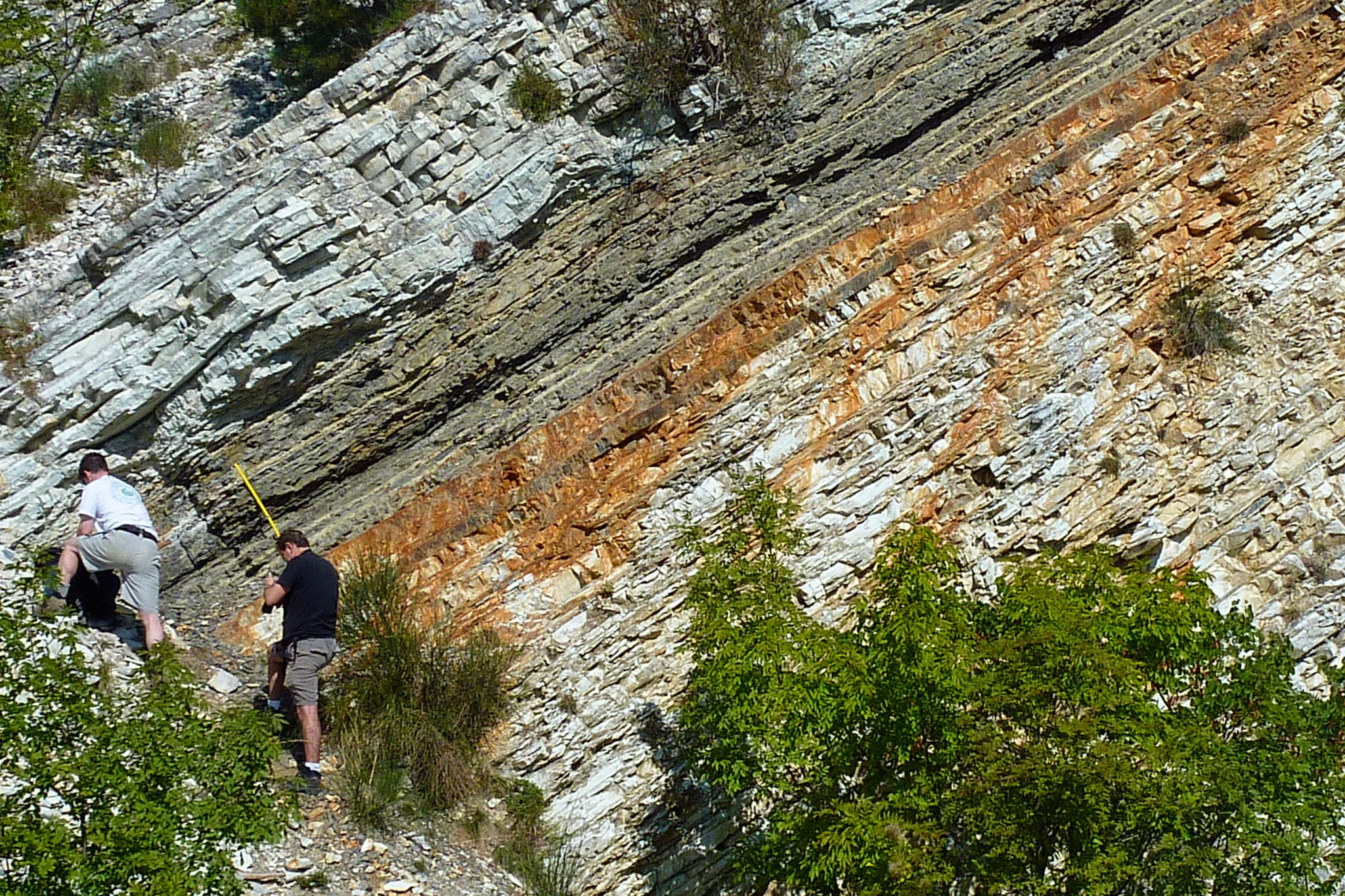Earth Surface Geochemistry
The Earth Surface Geochemistry group exploits the record of the chemistry of the past Earth held in sediments and rocks to decipher the evolution of conditions at the surface of the planet.
The group also investigates the key components of chemical cycles on the modern Earth by studying the chemistry of soils, rivers, lakes and the oceans. The big research questions include:
- Large-scale geochemical cycles at the surface of the Earth, including that of carbon and oxygen
- The controls on major changes in the chemistry of the oceans through time, including levels of dissolved oxygen
- The interactions between these major geochemical cycles and Earth’s climate
- The feedbacks between the surface environment of the Earth and its biosphere
Geochemistry begins in the field, and over the past decade the group has collected soil, river and seawater samples from all over the world. This fieldwork has included: soil sampling in Switzerland, USA and the UK; work on large river systems such as the Amazon in Brazil, the Ganges-Brahmaputra in India and Bangladesh, the Yangtze in China, the Nile in Sudan and Egypt, remote Arctic rivers in Northern Sweden; involvement in major international ocean sampling campaigns that have returned samples of seawater from remote parts of the Pacific, Indian and Atlantic Oceans as well as the Southern Ocean around Antarctica. We have also been involved in field campaigns to understand and collect sedimentary rocks that provide our record of chemical processes on the past Earth, including in Italy, Libya, USA, South Africa and Australia.
The Earth Surface Geochemistry group is led by Derek Vance.
One of our main tools in the group is isotope geochemistry, which uses small variations in the abundances of different isotopes of a given element to understand the key physicochemical processes operating in surface Earth environments. For example, tiny variations in the isotopic composition of trace metals in seawater can tell us about how oceanic plankton cycle these metals through their bodies into and out of the dissolved phase in the oceans. We also use these variations as tracers of mass transfer around the modern and past Earth. For example, we have used isotope geochemistry to trace water movement down river systems through the Sahara, river systems that are now long-gone but may once have allowed early modern humans to migrate “Out of Africa”.
To do all this requires sophisticated laboratories and instruments. We are lucky at ETH Zurich to have one of the best facilities for this purpose worldwide, attracting a wide variety of researchers, young and old, from around the world.
In addition to the chemical and isotopic analysis of soils, water and rocks, we use a variety of experimental approaches to understand the results. For example, we are engaged in the culturing of phytoplankton – in other words, the growth of photosynthesising plankton in controlled conditions in the laboratory in order to study the way they impact the chemistry of their surroundings. We also do experiments that do not involve life, for example on the way in which different mineral components of soils, or the particulate phase of rivers, take up metals from the dissolved pool in soil solutions of river water. We use these experiments as micro-scale analogs of nature, in order to better understand chemical and isotopic data from field studies, where the main controlling processes are often less clear.
Finally, we use the field data as well as the understanding obtained from experiments in quantitative models of the surface Earth. For example, we can quantitatively assess the degree to which mass transfer from the continents to the oceans via rivers (and ultimately chemical weathering of the continents) determines ocean chemistry, now and in the past. We can quantitatively simulate the degree to which ocean biology, as opposed to abiotic processes, control geographic and temporal variations in the pool of trace metals and other plant nutrients dissolved in seawater.
